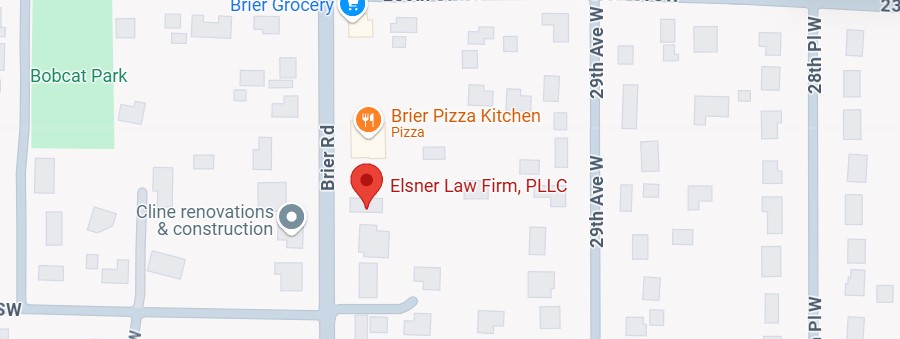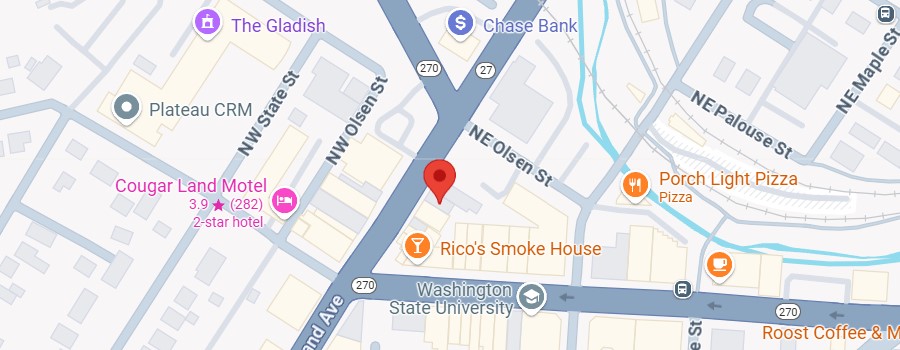Seattle Premises Liability Lawyer
If you’ve been injured on someone else’s property in Seattle, you need an experienced Seattle personal injury law firm fighting for your rights. At Elsner Law Firm, we’ve spent over 17 years helping Washington residents recover full compensation for premises liability accidents. We work on a contingency fee basis, meaning you pay no attorney fees unless we win your case.
Call (206) 447-1425 today for your free consultation about your Seattle premises liability case.
Property owners have a legal duty to maintain safe conditions for visitors. When they fail in this responsibility and someone gets hurt, they can be held liable for all resulting damages. Our experienced legal team understands Washington state premises liability law and knows how to build strong cases that get results.
What Makes a Valid Premises Liability Claim in Seattle?
A valid premises liability claim requires proving the property owner knew or should have known about a dangerous condition and failed to repair it or adequately warn visitors, resulting in your injury.
Under Washington state law, property owners owe different levels of care depending on your status as a visitor. Business customers (invitees) receive the highest protection, while social guests (licensees) receive moderate protection. Invitees have the highest level of protection under premises liability law compared to licensees and trespassers. Property owners owe their invitees the highest duty of care regarding safety and maintenance. Even trespassers may have some rights in certain situations.
Seattle’s frequent rain creates unique premises liability hazards. Wet floors during the rainy season, icy walkways on Capitol Hill’s steep streets, and slippery surfaces at Pike Place Market all represent common dangerous conditions. Property owners must address these Seattle-specific risks or face legal consequences.
The key elements include duty of care, breach of that duty, causation, and damages. Our team investigates each element thoroughly to build the strongest possible case for our clients.
Who Can Be Held Liable for Seattle Property Accidents?
Property owners, business operators, landlords, and government entities can all be held liable for premises liability accidents when they fail to maintain safe conditions or provide adequate warnings. In some cases, non-property owners can also be held liable in premises liability claims, known as third-party liability.
Residential property owners must maintain safe conditions for invited guests and service providers. Landlords can be liable for common area accidents when they control maintenance responsibilities. Business owners face the highest duty of care for customers shopping or dining at their establishments. Licensees receive a lower duty of care than invitees, but property owners must still protect them from known hazards.
Commercial properties throughout Seattle carry significant liability exposure. Westlake Center retailers, University of Washington facilities, and Seattle Center venues must all maintain appropriate safety standards. Even construction companies working on South Lake Union developments can face premises liability claims.
Government entities including Seattle Parks and the city itself can be held responsible for dangerous conditions on public property. However, claims against governmental bodies have special notice requirements and shorter deadlines.
Common Types of Seattle Premises Liability Accidents

Seattle premises liability cases commonly involve slip and fall accidents, inadequate security incidents, swimming pool accidents, dog bites, and injuries from falling objects or faulty equipment. Common causes of premises liability injuries include slip and fall incidents, inadequate lighting, and failure to maintain property. Slip and fall incidents are the most common type of premises liability case.
Weather-related hazards represent a major category of Seattle premises liability accidents. Pioneer Square’s historic brick sidewalks become treacherous when wet. Queen Anne’s steep slopes create serious slip hazards during ice storms. Even covered areas like the University District’s walkways can become dangerous without proper maintenance.
Construction site accidents occur frequently given Seattle’s ongoing development boom. Falling debris, unsafe walkways, and inadequate barriers all contribute to injuries. Property owners and contractors share responsibility for maintaining safe conditions around active job sites.
Inadequate lighting in parking garages creates security risks and trip hazards. Elevator and escalator accidents in Seattle’s many high-rise buildings represent another common premises liability scenario requiring specialized legal knowledge.
What Injuries Qualify for Premises Liability Claims?
Traumatic brain injuries, spinal cord injuries, broken bones, soft tissue injuries, cuts and lacerations, and burns can all form the basis of a premises liability claim in Seattle.
Brain injuries from slip and fall accidents often result in long-term cognitive problems and disability. Spinal injuries can cause permanent paralysis requiring lifetime medical care. Even seemingly minor soft tissue injuries can cause chronic pain and mobility limitations.
Broken bones from premises liability accidents may require multiple surgeries and extensive physical therapy. Cuts from broken glass or sharp objects can cause permanent scarring and disfigurement. Burns from defective equipment or dangerous substances often need specialized treatment.
Seattle’s excellent medical facilities including Harborview Medical Center and UW Medical Center provide world-class trauma care. However, even with the best treatment, serious injuries result in substantial medical bills and lost wages that property owners should compensate.
How Much Time Do I Have to File a Premises Liability Claim?
Washington’s statute of limitations gives you three years from the date of injury to file a premises liability lawsuit, but evidence preservation and early legal action are crucial.
Government claims have much shorter deadlines. Claims against Seattle or other municipal entities require written notice within 90 days of the accident. This makes immediate legal consultation essential for any accident on city property.
Evidence disappears quickly after accidents. Security camera footage gets deleted, witnesses forget details, and dangerous conditions get repaired. Starting your legal case early preserves crucial evidence and witness testimony that can make or break your claim. Gathering evidence like accident reports, medical records, witness statements, and expert testimony is essential to proving negligence.
Insurance companies often contact accident victims quickly hoping to secure cheap settlements. Having legal representation from the beginning protects your rights and ensures you don’t accept inadequate compensation. Property owners’ insurers often downplay injuries or shift blame during premises liability claims.
What Compensation Can I Recover in a Seattle Premises Liability Case?
Victims can recover medical expenses, lost wages, pain and suffering, property damage, and in wrongful death cases, funeral costs and loss of companionship damages.
Medical bills represent the most obvious category of damages. This includes emergency room treatment, surgery, hospitalization, physical therapy, and future medical needs. Seattle’s high medical costs make comprehensive documentation essential for full recovery.
Lost wages include both past and future income loss. If your injuries prevent you from returning to your previous job, you may recover reduced earning capacity damages. Self-employed individuals face special challenges proving income loss that experienced attorneys can address.
Washington state places no caps on pain and suffering damages in most premises liability cases. Serious injuries causing permanent disability or disfigurement can justify substantial non-economic damage awards.
Frequently Asked Questions
How much can you get for a premises liability claim?
Compensation varies widely based on injury severity, medical costs, lost wages, and the degree of property owner negligence. Minor injuries might settle for thousands while catastrophic injuries can result in million-dollar awards. Our team evaluates each case individually to pursue maximum compensation.
What are my options if injured due to premises liability?
You can file an insurance claim with the property owner’s liability carrier or file a lawsuit in King County Superior Court. Many cases settle through negotiation, but we’re prepared for trial when necessary. The best option depends on your specific circumstances and the insurance company’s response.
What does premises liability coverage cover?
Most property insurance policies include premises liability coverage for accidents on the property. This typically covers medical expenses, lost wages, pain and suffering, and legal defense costs. Coverage limits vary, so multiple insurance policies may apply to serious injury cases.
What is premises liability in Washington state?
Premises liability holds property owners responsible for maintaining reasonably safe conditions and warning visitors of known hazards. Washington follows traditional common law rules with some statutory modifications. The property owner’s duty of care depends on the injured person’s legal status as an invitee, licensee, or trespasser. Premises liability issues can be complex, and determining liability depends on the injured person’s visitor status.
What to Do If You Were Hurt on Someone’s Property?
Seek immediate medical attention, document the accident scene with photos, collect witness contact information, report the incident to the property owner, and contact a premises liability attorney promptly. Immediate medical attention is crucial following a premises liability accident to strengthen your claim. Avoid giving recorded statements to insurance companies before consulting with legal counsel.
Can I sue the City of Seattle for a premises liability accident?
Yes, but claims against Seattle require special procedures including written notice within 90 days of the accident. The city has some immunity protections, but they remain liable for dangerous conditions they created or should have known about. Government claims require experienced legal representation due to their complexity.
What if I was partially at fault for my premises liability accident?
Washington follows comparative negligence rules, meaning you can still recover damages even if you were partially at fault. Your compensation gets reduced by your percentage of fault, but you don’t lose everything. Insurance companies often exaggerate victim fault to reduce payouts.
How long does a premises liability case take to settle in Seattle?
Simple cases with clear liability and minor injuries may settle within months. Complex cases involving serious injuries or disputed liability can take years to resolve. Most cases settle before trial, but being prepared for litigation often leads to better settlement offers.
Contact Seattle’s Experienced Premises Liability Legal Team
Don’t let insurance companies minimize your premises liability claim. Property owners must be held accountable when their negligence causes injuries. Our experienced legal team knows how to investigate accidents, preserve evidence, and negotiate with insurance companies to recover full compensation for our clients. Your attorney can handle everything on your behalf so you can focus on recovering from your injury.
We handle all premises liability cases on a contingency fee basis. You pay no attorney fees unless we recover compensation for your injuries. This allows everyone access to quality legal representation regardless of their financial situation.



